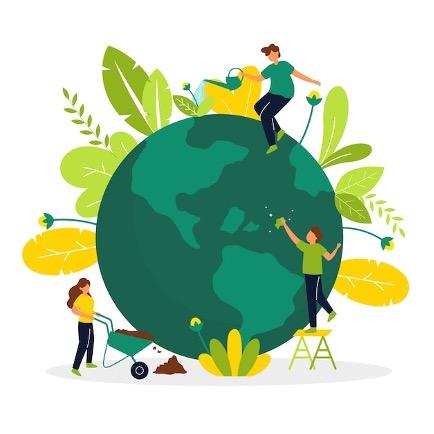Conference "The making of a plastic pandemic"
Event on the medical plastic crisis
Blog post by Faidra Batsaki.
"The making of a plastic pandemic", a conference held on the 1st of June 2029 as a collaboration between University of Edinburgh, Heriot Watt University and industrial partners such as DiaDev, Erc, and NHS Scotland, addressed the burning issue of the medical waste crisis. With a poster display, and an exhibition of discarded examples of biocontainers as well as common pharmacy products such as lateral flow tests, the messages were direct, current, and of unquestionable urgency.
Single-use products and their disposal were the protagonist of many discussions. For example, the DiaDev project traced the epidemic waste of 2019 to landfills in Sierra Leone where only less than half of the facilities had a functional incinerator. Adding to the conversation around the manufacturing process, Maiwenn Kersaudy-Kerhoas, Professor in Microfluids Engineering, and guest speaker of the day, presented her multidisciplinary lab's research on innovative microtechnologies for healthcare applications. She reports that the lab's policy falls under the three Rs, reduce, reuse, recycle, with a primary interest on recycled PMMA as biomaterial, as opposed to the most commonly used polyester PLA, and a particular interest to developing reusable diagnostic parts. During the panel discussion that followed, a conversation between a social scientist and an engineer, emphasised the importance of multidisciplinary collaborations during the product design stages, as well as the importance of questioning each other. Learning is a constant process, and can only remain constant if questions are asked, and changes are underway.

Covid19 left 2600 tones of medical waste behind. Single-use point-of care testing devices present a massive environmental burden in their whole life cycle, from raw material production, to their various transportations to manufacturing facilities and distribution, up to their waste disposal. Several talks stressed the importance of circular economy, emphasising the confusion around the definition of the term. As defined by the Ellen MacArthur Institution, circular economy is based on three principles: eliminating waste and pollution, circulating products and materials, and regenerating nature.
Efforts have been made to introduce sustainable diagnostics to the market with the hope of "green" diagnostic tests, which despite having been doomed unfeasible by FIND in 2021, might now be closer than we think. For example, cellulose-based flushable pregnancy tests, and cardboard-based LFT cassettes (both examples were presented at the exhibition) are already available to consumers. Global health policies can transform and bring down all norms and values. Manufacturers are required to provide disposal information, but regulations thereof, vary from country to country and the regulatory bodies in place. Promisingly, as of 2021, EU and the UK health policy have established legal requirements for inclusion of disposal information on products.
Wendy Rayner, the Chief Sustainability Officer of NHS Scotland finished the day on a positive note, announcing that NHS Scotland, as the largest employer in Scotland, is on track to deliver a net zero health service by 2040. Their ongoing Net Zero Plan involves larger focus on the Inner loop of Circular Economy (reusing, remanufacturing), and treating the Outer Loop (recycling) as the fallback, as well as establishing a clear plastic hierarchy for all manufacturers, and a controlled mapping of the supply chains.
Overall, the day was an excellent mix of conversations, informative talks, interactive workshops, posters and exhibitions, directed to a broad audience of different disciplines, and career stages.

